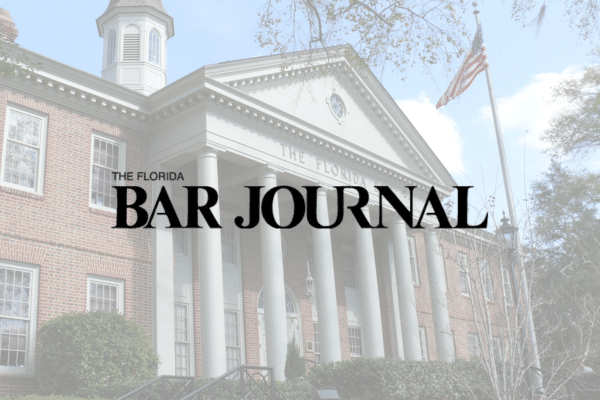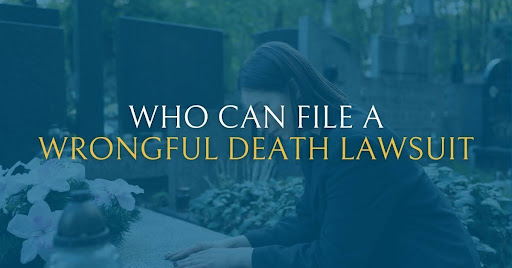Vol. 98, No. 6 November/December 2024 | By Anthony P. Guettler and Patrick J. Lannon
Florida continues to be a top destination for retirees, investors, and other individuals who enjoy living in the Sunshine State. Many of our new residents are married and bring with them property acquired in community property jurisdictions.[1] Community property has many unique and valuable legal and tax attributes. The best-known example of the tax attributes of community property is the double step-up in basis. Upon the death of the first spouse to die, both halves of appreciated community property will receive a step-up in basis under I.R.C. §1014(b)(6).[2] For these reasons, it is important that practitioners have a working knowledge of community property and how to deal with it in their practices.[3]
Although Florida is not a community property jurisdiction, some of the rights acquired by spouses in their marital property while living in a community property jurisdiction are protected under Florida law.[4] Specifically, Florida through the Florida Uniform Disposition of Community Property Rights at Death Act (act) protects the rights that married couples have in their community property at death.[5] Since its passage in 1992, the act has remained largely unchanged. However, in H.B. 923, the Florida Legislature made several important changes to the act and other parts of the Florida Probate Code. The purpose of this article is to explain the changes to the Florida Probate Code in H.B. 923 and their implications for attorneys and their clients.
H.B. 923 was intended primarily to protect a surviving spouse’s rights in community property from inadvertent forfeiture. Traditionally, most practitioners believed that a surviving spouse’s rights in community property were vested at the time of death and that probate creditor claims rules did not apply on the death of the first spouse.[6] However, in Johnson v. Townsend, 259 So. 3d 851 (Fla. 4th DCA 2018), this notion was put to the test. In Johnson, the court held that: 1) a surviving spouse’s action to assert ownership rights in property subject to the act was a creditor claim; 2) a surviving spouse’s interest in property subject to the act was a liability of the decedent; and 3) a surviving spouse with rights under the act is subject to the creditor claims procedures.[7] The surviving spouse failed to file a timely creditor claim and, as a result, lost her ownership rights in community property acquired with her husband while they lived in Texas.[8]
To protect the rights of a surviving spouse, the act was modified to make clear that a surviving spouse’s rights in property subject to the act are not subject to the creditor claim procedures of the Florida Probate Code.[9] Modification of the act to confirm that a surviving spouse’s ownership rights are not creditor claims was the most important change made by H.B. 923. However, there were several other changes made to the Florida Probate Code.
Property Subject to the Act
In the case of a married couple[10] moving to Florida after having previously resided in a community property jurisdiction, on the death of the first spouse to die, the starting point for determining the rights of the surviving spouse (as well as the rights of the estate of the first spouse to die, creditors, and other parties who may have an interest) is to determine whether there is property subject to the act. Generally speaking, the act applies to property acquired by the married couple while living in a community property jurisdiction, as well as the rents, income, dividends, and proceeds from such property, and property traceable to such property.[11] Depending on the circumstances, it can be difficult to determine the extent to which the act applies. This is particularly true in cases with commingled property and income, clients without clear records, and non-probate transfers (such as through a revocable trust).
To illustrate the questions that can come up regarding the scope of the act, consider the following example. Assume a married couple moves to Florida from Texas with a brokerage account in spouse #1’s name acquired as community property while living in Texas. After moving to Florida, spouse #1 unilaterally transfers the brokerage account to spouse #1’s revocable trust. Sometime after the transfer, spouse #1 dies survived by spouse #2. Is the brokerage account property subject to the act? Likely not, because the act applies only to property owned by the decedent. If the brokerage account is not property subject to the act, what are the procedures spouse #2 must follow to assert his or her ownership rights in the community property held in spouse #1’s revocable trust? The act does not address the transfer of community property for assets not directly owned by the decedent upon death.[12]
Although H.B. 923 did not make significant changes to the application of the act, it did clarify that certain types of property are excluded from application of the act. First, F.S. §732.217 was amended to clarify that Florida homestead and tenants by entirety property is specifically excluded from the act. In addition, language was added to F.S. §732.225 establishing that investment of community property in Florida homestead and tenants by entirety property establishes a conclusive presumption that the spouses have agreed to terminate their community property rights. In many cases, married couples that move to Florida with appreciated community property will want to preserve their community property rights to take advantage of the income tax benefits available to the surviving spouse.[13] In those cases, couples that are not concerned with asset protection should avoid titling appreciated assets as tenants by entirety property.[14]
Disposition at Death of Property Subject to the Act
One-half of property to which the act applies is the property of the surviving spouse, which “is not property of the decedent’s probate estate,” and, therefore, not subject to testamentary disposition by the decedent.[15] The changes made to F.S. §732.219 clarify that the surviving spouse’s one-half interest in property subject to the act is not subject to probate administration, and that no creditor claim is required to be filed. In addition, new language was added to F.S. §733.607 directing the personal representative not to take possession of the surviving spouse’s one-half share, and clarifying that the personal representative has no right to possess or control such property.[16] This new provision of the Florida Probate Code clarifies that the surviving spouse’s one-half share is not subject to administration in the probate estate of the deceased spouse, and, therefore, not subject to the decedent’s creditor claims, expenses of administration, or possession by the personal representative.
The other one-half of such property “is the property of the decedent’s probate estate” and subject to testamentary disposition.[17] This is a change from the prior verbiage in the act, which stated that such property “is the property of the decedent.” The practical effect of this new language with respect to non-probate transfers is unclear. For example, assume a married couple moves to Florida from Texas with a brokerage account in the name of spouse #1 that was acquired as community property while the couple lived in Texas. After moving to Florida, spouse #1 names his or her child as the pay-on-death beneficiary of the account. Some time later, spouse #1 dies owning the account in his or her name and survived by spouse #2. Is the decedent’s one-half ownership interest in the account now part of the decedent’s probate estate? Or, should this provision be construed simply to permit the devise of the decedent’s one-half ownership interest through the pay-on-death beneficiary designation?[18]
Waiver of Rights Under the Act (After Death)
To the extent not waived during life under F.S. §733.702, H.B. 923 provided a new procedure for post-death waiver of rights by the surviving spouse to assert ownership under the act of property “held by the decedent at the time of his or her death.”[19] The waiver must be in writing, signed by the spouse (or his or her agent, attorney in fact, guardian, or personal representative) and must have the new language included in §732.219(2). There is no requirement that this new permitted waiver of rights be filed in the probate court (although this may be a good practice). The ability of the surviving spouse to waive rights under the act can be a useful tool to eliminate uncertainty in the estate administration and protect the personal representative from liability, especially when the records are not clear regarding the extent to which property is subject to the act (because of the passage of time, lack of recordkeeping, commingling of funds, or other reasons).
Although a waiver of rights under F.S. §732.219(2) can be an effective means to tie up loose ends in a probate administration with poor records, it is important to keep in mind the tax and legal consequences of such a waiver. For example, it is possible (and perhaps likely) that a waiver of property ownership rights by a surviving spouse during the estate administration that results in the transfer of property to others is a taxable gift (and not a qualified disclaimer). It is unclear whether the gift would be to the probate estate or to the beneficiaries under the will. Depending on the circumstances, a gift by the surviving spouse of his or her one-half of community property may have meaningful income, gift, estate, or generation-skipping transfer tax consequences. In addition, before executing a waiver of rights under F.S. §732.219(2), a surviving spouse with existing debts or liabilities should consider the implications for the surviving spouse and his or her creditors. Although a waiver of rights under F.S. §732.219(2) may soon become commonplace in estate administrations, practitioners should first think through the resulting tax and legal consequences.
Disputed Property Ownership Rights
There are new deadlines and new procedures that apply for parties seeking to assert property ownership rights arising under the act. H.B. 923 repealed former F.S. §§732.221 and 732.223 dealing with perfection of community property rights at death and adopted F.S. §732.2211 in their place. In the case of any demand or dispute arising under the act with respect to “property held by the decedent or surviving spouse at the time of the decedent’s death,” the act now requires that an action be filed within two years from the death of the first spouse to die.[20] Disputes regarding ownership of property subject to the act are to be determined “in an action for declaratory relief governed by the rules of civil procedure.”[21] An individual seeking to assert property ownership rights under the act is not required to file a creditor claim.[22] An action for declaratory relief with respect to property ownership rights under the act is not subject to the creditor claim procedures of the Florida Probate Code.[23] However, if a complaint is not filed to resolve a dispute regarding property ownership rights under the act “within [two] years after the decedent’s death,” it is forever barred.[24]
In considering an individual’s rights with respect to community property upon the death of the first spouse, it is important to note that certain rights or claims may arise outside of the act.[25] For example, if a spouse makes a unilateral lifetime gift of community property that the other spouse did not approve, the spouse who did not authorize the gift may have a claim against the gifting spouse at the time of his or her death. A claim of one spouse against another for unauthorized lifetime actions with respect to community property may still be subject to Florida’s creditor claims procedures. Another example would be community property held in the deceased spouse’s revocable trust. If the revocable trust property is not property subject to the act, it is unclear what procedures will apply. In this case, the safest course of action may be for the surviving spouse to file a timely creditor claim to preserve any community property rights that may be subject to the creditor claims procedures.
Liability of the Personal Representative
A personal representative has no right to and may not knowingly take possession of the surviving spouse’s one-half of community property,[26] but a personal representative has no duty to discover whether the act applies to “property held by the decedent or surviving spouse at the time of the decedent’s death.”[27] Under H.B. 923, the act now has a clear mechanism to trigger the personal representative’s duty to discover whether there is community property.
To trigger the personal representative’s duty, the surviving spouse or a beneficiary must make a written demand within six months after service of the notice of administration.[28] A creditor must make a written demand within the time the creditor has to file a claim in the estate (which depends on whether the creditor is reasonably ascertainable).[29] If no written demand is made, the personal representative has no duty to discover property subject to the act. However, keep in mind that failure to make a written demand by the deadline to trigger the personal representative’s duty will not preclude the filing of a complaint for declaratory relief before the two-year deadline. The act makes clear that a personal representative is not liable for distributing property subject to the act to persons whose rights have been forfeited by the passage of time. However, in the absence of a waiver, forfeiture of ownership rights in community property subject to the act by the surviving spouse solely through the passage of time can only occur two years after the decedent’s death.[30]
Protection of Persons Transferring Property Subject to the Act
Current law protecting a purchaser for value or a lender remains unchanged and is still in effect.[31] A purchaser for value from the surviving spouse or the personal representative of the deceased spouse’s estate with apparent title will continue to be protected under the act.[32] However, additional protections have been added for payors and other third parties. Payors (i.e., persons who transfer property subject to the act) who act “in good faith reliance on the validity of a governing instrument” are not liable.[33]
For example, suppose a decedent owned a bank account in his or her sole name at the time of his or her death. The account was initially acquired as community property by the decedent and his or her spouse while they lived in Texas. After establishing the account, the decedent and his or her spouse moved from Texas to Florida. After moving to Florida, the decedent designated his or her child as the pay-on-death beneficiary of the account. A few weeks after the decedent’s death, the bank pays the remaining funds in the account to the decedent’s child in accordance with the pay-on-death designation. Although the surviving spouse would continue to have rights in the account under the act, the bank is protected from liability.
Waiver of Rights Under the Act (During Life)
The rights of a surviving spouse to an elective share, homestead, exempt property, and other rights may be waived through a post-nuptial agreement under F.S. §732.702. H.B. 923 amends §732.702 to include a specific reference to waiver of claims under the act.[34] In addition, F.S. §732.219(2), which is the primary dispositive provision of the act, now specifically references the waiver permitted under §732.702.
These new changes raise some interesting questions for estate planners who are seeking certainty regarding the character of the property they are dealing with on behalf of clients. Now that F.S. §732.702 has been modified to include the waiver of community property rights, what is the proper method for a spouse to waive his or her rights under the act during life? Should agreements under §732.702 be the exclusive method for waivers of community property rights going forward? Can a married couple still transmute (separate) property by a transmutation agreement that would have been effective in the jurisdiction in which the community property was acquired? It is important to remember that F.S. §732.702 requires two witnesses and financial disclosures (which, traditionally, may not have been part of every estate planner’s community property rights waiver forms or community property transmutation agreements).
These questions are particularly concerning given the gifting transactions being made in anticipation of sunsetting tax exemption levels and changing tax laws. If a grantor retained annuity trust, spousal lifetime access trust, or a life insurance trust is funded with community property, it may be treated as a gift from both spouses and, therefore, not have the desired tax result, making it very important that a waiver of community property rights is effective.
Notice of Administration and Notice to Creditors
To bring awareness to the unique nature of community property, as of June 13, 2024, new language is required to be added to the notice of administration and notice to creditors. Specifically, the following language must be included in the notice of administration:
The personal representative or curator has no duty to discover whether any property held at the time of the decedent’s death by the decedent or the decedent’s surviving spouse is property to which the Florida Uniform Disposition of Community Property Rights at Death Act as described in [§§]732.216-732.228, applies, or may apply, unless a written demand is made by the surviving spouse or a beneficiary as specified under [§]732.2211.
Similar (but different) language also must be included in the notice to creditors.[35]
Conclusion
Although Florida is not a community property jurisdiction, it has a long history of protecting the rights on death of married couples in community property acquired before moving to Florida. H.B. 923 makes several important changes to the Florida Probate Code that will help protect and preserve those important, unique, and valuable rights. Most importantly, the act now provides an improved system for protecting a surviving spouse’s ownership rights to one-half of property subject to the act. The new system should help prevent the unintended forfeiture of rights by a surviving spouse. Although the provisions of the act do not cover some common situations, H.B. 923 provides an improved framework for dealing with the treatment of community property acquired by spouses before moving to Florida.
[1] The community property jurisdictions in the U.S. are Arizona, California, Idaho, Louisiana, Nevada, New Mexico, Texas, Washington, Wisconsin, and Puerto Rico. In addition, many countries around the world are community property jurisdictions.
[2] It is important to note that there are a number of other important income, estate, gift, and generation-skipping transfer tax attributes that are unique to community property. Although the double step-up in basis for appreciated property is the most widely known, there are other important issues to consider in assisting clients with planning for and administration of community property.
[3] This article deals exclusively with the rights of spouses in community property established by married couples while living in a community property jurisdiction before moving to Florida. Establishing community property through a Florida community property trust is a separate matter outside the scope of this article. The provisions governing community property established within the confines of a Florida community property trust can be found in Fla. Stat. §§736.1501-736.1512.
[4] For purposes of this article, property acquired by a married couple as community property while living in a community property jurisdiction (or the income, rents, or proceeds from such property, or the property traceable to such property) will be referred to as “community property.”
[5] See Fla. Stat. §§732.216-732.228.
[6] There were no deadlines in the act that would have put a surviving spouse or his or her attorney on notice that filing a timely creditor claim was prerequisite to asserting property ownership rights under the act.
[7] Johnson v. Townsend, 259 So. 3d 851 (Fla. 4th DCA 2018).
[8] Id.
[9] See Fla. Stat. §732.2211(1)(b).
[10] Florida law does not provide community property rights to unmarried couples.
[11] See Fla. Stat. §732.217.
[12] Note that these issues have been addressed in the new Uniform Community Property Disposition at Death Act adopted by the Uniform Law Commission on November 24, 2021 (Uniform Act). The Uniform Act has provisions that deal with non-probate transfers of community property.
[13] For married couples owning community property, on the death of the first spouse both halves of appreciated property will receive a step-up in basis under I.R.C. §1014(b)(6).
[14] Married couples seeking to invest community property funds in Florida homestead and still take advantage of the double step-up in basis on the death of the first spouse to die may want to consider purchasing their homestead through a Florida community property trust.
[15] Fla. Stat. §732.219(1).
[16] Fla. Stat. §733.607(1).
[17] Fla. Stat. §732.219(1).
[18] Again, it is interesting to note that these issues have been addressed in the new Uniform Act. The Uniform Act has provisions that deal with non-probate transfers of community property.
[19] Fla. Stat. §732.219(2).
[20] Fla. Stat. §732.2211(1)(a).
[21] Id.
[22] Fla. Stat. §732.2211(1)(b).
[23] Id.
[24] Fla. Stat. §732.2211(1)(a).
[25] Fla. Stat. §732.2211(4).
[26] Fla. Stat. §733.607(1).
[27] Fla. Stat. §732.2211(2).
[28] Fla. Stat. §732.2211(2)(a).
[29] Fla. Stat. §§732.2211(2)(b)-(c) and 733.2121(3)(a). Unless a creditor knows with certainty that there is no community property, it would seem prudent to routinely include a demand for determination in every filed claim.
[30] Fla. Stat. §732.2211(3).
[31] Fla. Stat. §732.222.
[32] Id.
[33] Fla. Stat. §732.2231.
[34] Fla. Stat. §732.702.
[35] Fla. Stat. §732.2121.









